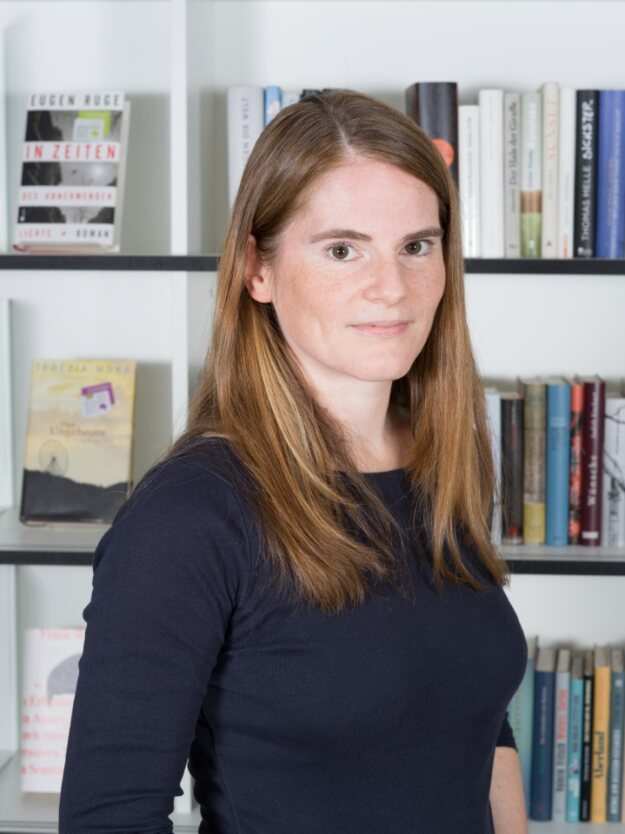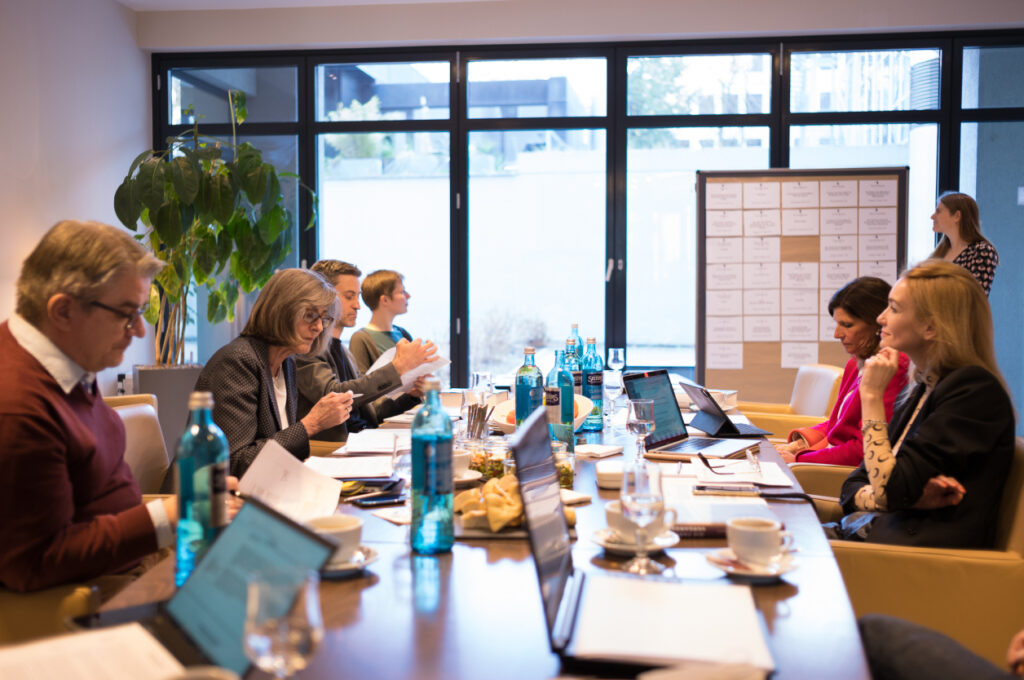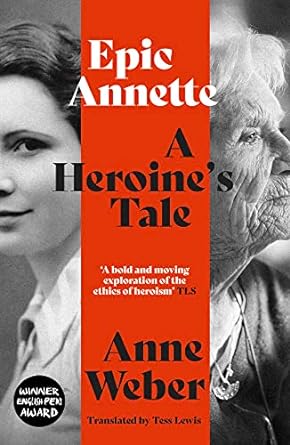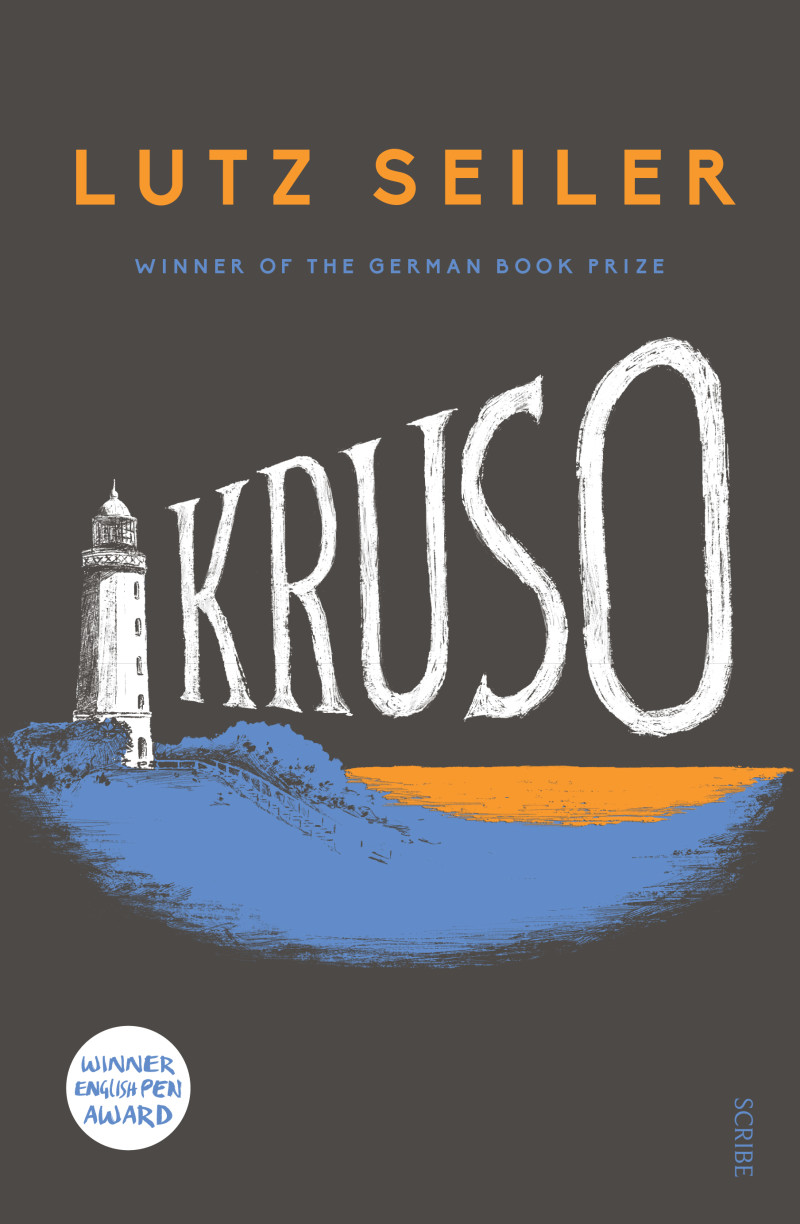NBG speaks to Gunvor Schmidt about the German Book Prize and German Non-Fiction Prize.
Gunvor Schmidt is the Project Manager of the German Book Prize and German Non-fiction Prize with the German Publishers and Booksellers Association (Börsenverein des Deutschen Buchhandels). Gunvor spoke to NBG about managing the two prizes: how she works with the juries, whether there are discernible trends in the types of books submitted, and what it’s like as the winners’ names are finally made public at the award ceremonies.
The German Book Prize is presented to the best German-language novel just before the start of the Frankfurt Book Fair each year. It is presented by the Foundation for Book Culture and the Promotion of Reading of the German Publishers and Booksellers Association (Stiftung Buchkultur und Leseförderung des Börsenvereins des Deutschen Buchhandels). The prize is intended to draw attention beyond national borders to authors writing in German, to reading and to the medium of the book. This year, 111 publishers from Germany, Austria and Switzerland submitted 172 novels. Seven jurors personally assess all of the submitted books that meet the entry criteria.
The German Non-Fiction Prize is the newer of the two prizes. It is presented to the non-fiction book of the year to honour outstanding non-fiction books in German-language original edition that inspire social debate. Publishers from Germany, Austria and Switzerland may submit up to two German-language non-fiction books from their current or planned programme for consideration for the prize. The jury compiles a list of nominations comprising eight titles, which is announced around World Book Day in April. From this selection, the jury members then choose the non-fiction book of the year, which is announced in May/June.
As the prizes hope to help put German-language writing on an international stage, New Books in German works with Gunvor and her colleagues to publish information in English on the books nominated for both prizes. The books often have sample translations so that readers in English can get a feeling for them.

Gunvor! How are you? What are you working on at the moment?
I am busy, but well, thanks for asking! Having announced the shortlist for this year’s German Book Prize, we are now in preparation mode for the next steps: organising the submission process for the German Non-Fiction Prize and of course, we are getting everything in place for the prize ceremony (German Book Prize) in October.
Yes, you cover both the German Book Prize and the German Non-fiction Prize. What does your role involve?
As the project manager, I need to monitor all steps and stages of both prizes – from accompanying the jury in their deliberation process to ensuring that the correct number of microphones are ready at the prize ceremony. But there is one thing that I never do: I don’t get involved in evaluating the books. It is vital for us that the book prize bureau does not interfere with the jury’s decision-making.
Of course, there is a team of us behind the two prizes: two colleagues who organise the prizes with me, our head of department, colleagues from marketing and press relations and others. We all have a share in how the prizes develop and thrive.
Since the non-fiction prize is the newest of the two, could you tell us more about it?
Yes, this prize is our youngest member of the prize family. It has been awarded three times and has established itself in the German book market. The last prize-winner, “Ein Hof und elf Geschwister” by Ewald Frie, reached the top of Germany’s Non-Fiction bestseller list after the prize ceremony and remained there for over three months. We are all delighted about that.
There is so much to learn, so much to talk about, so many new perspectives to share about the world we live in.
Gunvor Schmidt
Our goal is not only to promote the genre of non-fiction as a source of knowledge and science, but also to contribute to a thriving and well-informed debate culture in heated times. Financial support comes from the Deutsche Bank Stiftung (who are also the leading supporter of the German Book Prize) for which we are hugely thankful.
When reading the nominated books and a few of the others that were submitted, I sometimes can’t believe we didn’t start the prize sooner. There is so much to learn, so much to talk about, so many new perspectives to share about the world we live in, all reflected in the list of nominees – the prize is the ideal occasion to extend my mind and anybody else’s.
I cannot imagine a world without books that explain the world. That is exactly what non-fiction does – and sometimes it even changes the world, or at least makes it a little bit better
Margit Ketterle, editor-at-large non-fiction Droemer Knaur
Did you always want to work with books?
Yes and no. I had different book-related jobs as a student and it felt natural, but I was open to other possibilities at the time. I then worked in internal communications for a couple of years – however, I missed books and book people after a while. So, I was very happy to start working with the German Book Prize in 2012. It was good to have worked for different publishers before – that way, I have an idea of what their side of the process looks like.
What is the best thing about your role?
Definitely working with the jury, hearing their passionate exchange about the books; also, getting such a broad overview of the current German-language novel and non-fiction production every year. I like having the opportunity to put good books in the spotlight since the prizes greatly impact the visibility of these books. And of course, the moment of the prize ceremony is the most exciting!

When does preparation for the German Book Prize start? Can you talk us through a year in the life of the book prize?
The preparation for the next prize year starts directly after each prize ceremony; the Academy then chooses the new jury while we are still evaluating the past year. The next steps are more or less public: the prize year starts with the submissions by the publishers and the jury announcement. When all submissions are in, the jury meets for the first time and starts reading all the submitted books. They have four to five months for that and it is definitely always a challenge. In this time, we prepare the next steps: communication, marketing and events, starting with the announcement of the Nominees. As soon as they are out, the high season starts for us, promoting the nominated books and preparing the prize ceremony. The German Book Prize has a Longlist and a Shortlist, so the selection is a three-step process. For the German Non-Fiction Prize, there is a list of eight nominated books that are all featured in the prize ceremony, since non-fiction books need more time and space to reveal their full impact.
As the German Non-Fiction Prize is awarded in June and the German Book Prize in October, the two cycles overlap, so different phases occur at the same time.
In the time you have been working on the German Book prize has the nature of nominated books changed – do you see different types of theme or different authors included?
…in the last couple of years, autofictional writing has been on our lists; themes concerning societal marginalisation or questions of identity; and more books by female authors are now represented…
Gunvor Schmidt
Since every jury is chosen anew, every group develops their own priorities. It is up to the jury to decide what makes literature prizeworthy and there is no linear development. But of course, changes and trends in the book market at large reflect on the lists of nominated books: in the last couple of years, autofictional writing has been on our lists; themes concerning societal marginalisation or questions of identity; and more books by female authors are now represented, to name only a few examples. On the other hand, a genre like the family saga – in very different forms and formats – has always been present and probably always will.
We spend a lot of time at NBG getting the right balance of jurors. How does the Academy go about selecting jurors for the prizes?
Yes, I can relate to that; the academy is always concerned with bringing people together who have different perspectives on the books in question but also have the necessary knowledge and know-how. So for the German Book Prize, every juror should be a literature expert, but it is interesting to have different vocational backgrounds, critics from different types of media etc. For the Non-Fiction prize, a further aspect is the scope of subjects; the jury should comprise different disciplines. Personal aspects can also be relevant when evaluating literature and non-fiction, such as age, place of residence, gender and family background. These aspects are, however, harder for the academy to assess and evaluate when choosing the jury.
What is the atmosphere like for you on the prize-giving nights?
It is always very exciting. Things never go exactly as planned, but so far, any slight glitches could always be sorted out; everybody needs to be flexible, calm and determined to make things work. And then, when the ceremony starts on stage, I need to accept that things are out of my hands. When everybody’s focus is on one thing and the suspense in the room is palpable, some real stage magic can unfold. And afterwards, when everybody comes together to catch up and relax, we can end our day in good company and in good spirits.



Some recent winners have been translated and published in English, among them Robert Menasse’s The Capital, Anne Weber’s Epic Annette: a heroine’s tale, and Lutz Seiler’s Kruso. Bloodbook, the 2022 winning title by Kim De L’Horizon will be published next year in translation by Jamie Lee Searle. What sorts of advantages can a nomination for the book prize bring to an author in terms of foreign rights sales do you think?
We know from the publishers that winning the German Book Prize always means selling more foreign rights – usually, several new offers are made for the book during the Frankfurt Book Fair, directly after the prize ceremony. But the nomination is also a chance to find a publisher abroad through the publicity the nominees receive. This is one of the reasons we cooperate with New Books in German – it is an excellent opportunity to present all nominated books to interested publishers and agencies and possibly act as a match-maker between them. We also cooperate with the Goethe Institute and Frankfurt Book Fair, who include the nominated books in their appearances worldwide.
We know from the publishers that winning the German Book Prize always means selling more foreign rights – usually, several new offers are made for the book during the Frankfurt Book Fair, directly after the prize ceremony.
Gunvor Schmidt
What do you wish the world knew about German-language literature?
I believe not everybody knows that “German-language” is not always “German”; it can be Austrian and Swiss, too. These books are regularly part (and sometimes a large part) of the nominees, so our lists reflect different national realities.
Also, I hope more and more readers will become aware of the vast scale of different voices, formats and literary projects that can be found in current German-language fiction and non-fiction. For all those who associate German literature mainly with Goethe: please take a look at what is happening right now; there is so much to discover!
“German-language” is not always “German”; it can be Austrian and Swiss, too.
Gunvor Schmidt
Thanks Gunvor, for letting us behind the scenes on the prizes!
Jury and ceremony photo ©vntr.media
Gunvor Schmidt photo © private
For more on the German Nonfiction Prize please click here.
For the German Book Prize here.
For information in English on the shortlisted books, including sample translations, click here.









